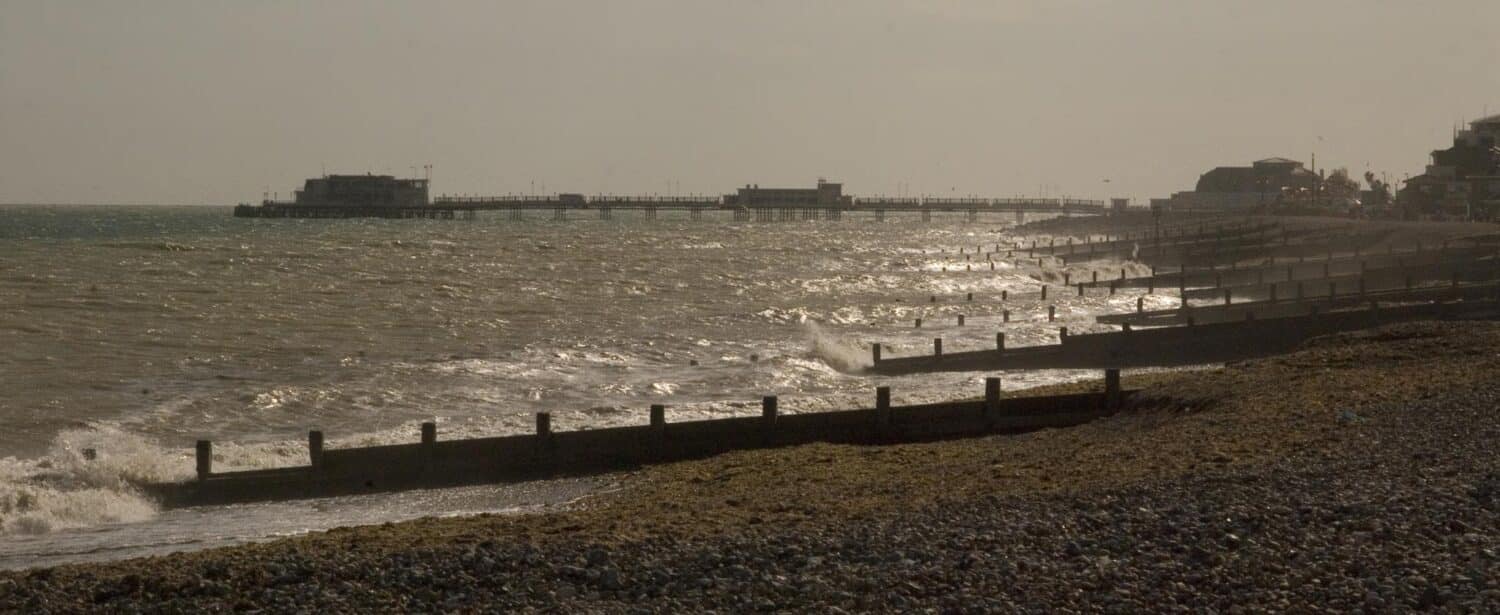Making Waves
Coastal communities are facing a health crisis. Our political system is to blame, writes Beccy Cooper MP
It is a joy to represent my adopted home of Worthing as the first Labour MP for Worthing West. Our dynamic seaside town has a thriving creative and cultural scene, the ever-changing sea and historic seafront, and easy access to the South Downs, neighbouring towns and the beautiful villages of West Sussex.
Yet coastal towns like mine are facing a health crisis. The Chief Medical Officer’s 2021 report, Health in Coastal Communities, found that coastal areas have some of the worst health outcomes in England, with low life expectancy and high rates of major diseases, such as cardiovascular disease. More than half of the local authorities with the highest rates of heroin-related deaths are coastal.
Data on health inequalities and inequity is a further indication that decisions made by those of us in a position of influence are not yet working to maximise the health and wellbeing of the people we represent. In Worthing West, a woman living in one of our poorest areas will live an average of 8.3 years less than a woman living in one of our wealthiest areas, and for the population as a whole, the time spent in poor health is increasing. Inequalities in life expectancy are increasing, especially for women.
Our healthcare system certainly needs more resources – but on its own, this will not be enough. I got into politics, first as a local councillor and council leader and now as an MP, because as a public health doctor I know that social, economic, environmental and structural factors affect our health. We know, for example, that exposure to poor housing conditions, including damp, cold, mould and noise, is strongly associated with poor physical and mental health. People do not thrive without clean water, clean air, access to green space and good food. Our bodies become far less resilient to illness when these things are not available to us, and the same is true of housing, education and jobs.
Looking through this lens, coastal communities face wicked problems; challenges that are complex, interconnected and difficult to solve. Coastal towns are more likely to have higher levels of deprivation than non-coastal towns, to suffer from skills shortages and limited access to further and higher education. We have a disproportionately high number of people claiming disability and sickness benefits.
A lack of affordable housing and the increase in cost of living has hit coastal communities hard, with 2,880 households waiting for social housing in Worthing and Adur alone. Coastal towns face hard constraints on housebuilding and need increased investment alongside planning reforms to help local authorities address the dire need for more social rented homes.
Isolation, deprivation, levels of transience and homelessness, poor quality housing, outward migration of young people and gridlocked transport systems are not unique to coastal towns. But these characteristics come together with the nature of our coastal economies to create a need for focused support for coastal regeneration and urgent investment in health and social care. We need joined-up solutions and increased funding to support coastal communities.
Of course, the solutions will not all come from central government. Sussex benefits from strong working relationships across different areas which recognise that we cannot solve our challenges alone. The Greater Brighton Economic Board leads joint work to accelerate our journey to delivering green energy, improve food systems locally, and strengthen access to our digital and creative industries. The Sussex Visitor Economy Initiative has ambitions to grow a sustainable year-round tourism industry that can provide increased prosperity and jobs for the region. The Living Coast UNESCO Biosphere and the recently launched Sussex Bay are projects of radical collaboration to conserve and restore our blue nature, ensure sustainable socioeconomic development and fund nature research.
I said in my maiden speech to parliament that, for too long, our politics has been making people sick. Reducing inequality and inequity and helping local economies to thrive across the nation will allow everyone to do better. The politics of health is the narrative of our nation. A government which focuses on the health and wellbeing of the people we serve is a government that will enable us to rise together to face the challenges of both today and tomorrow.
Image credit: Matthew Gilder via Flickr
Image credit (news and insight page): Mark Bridge via Flickr

